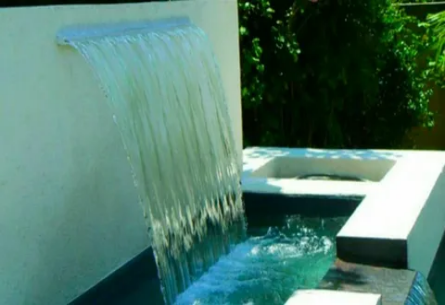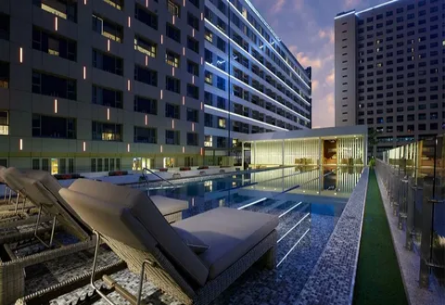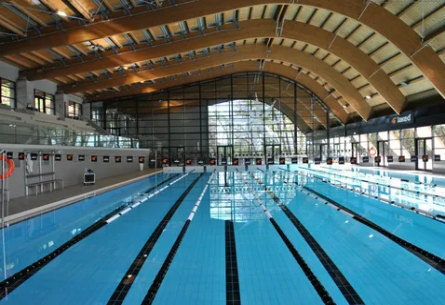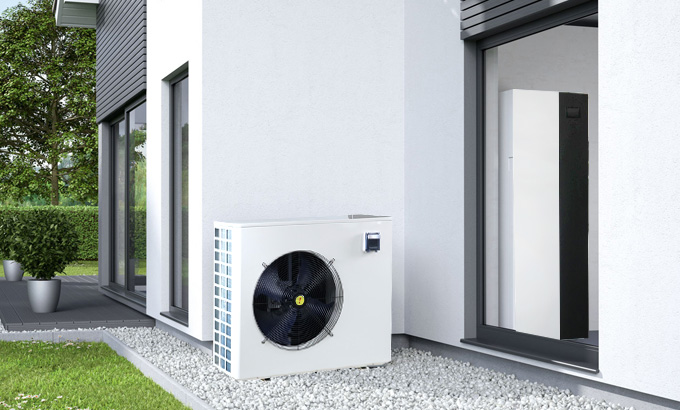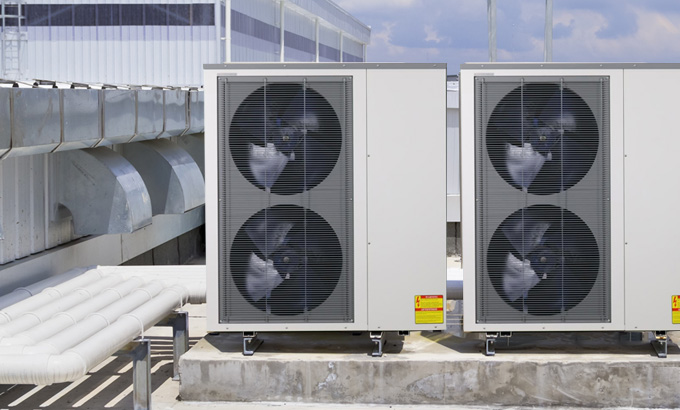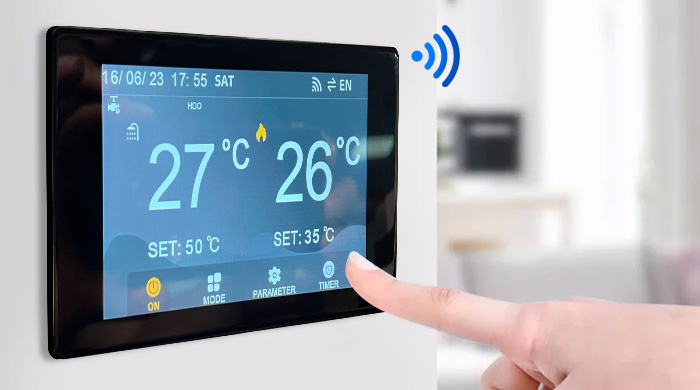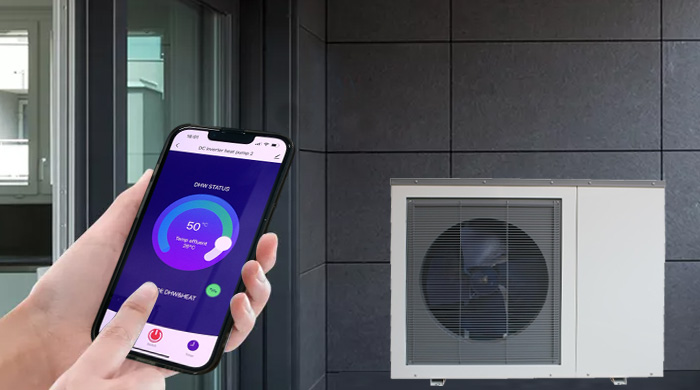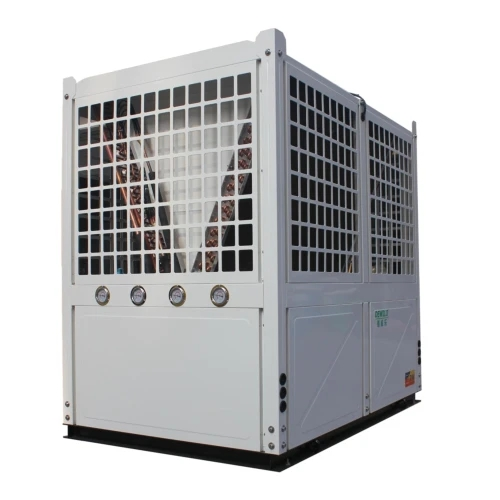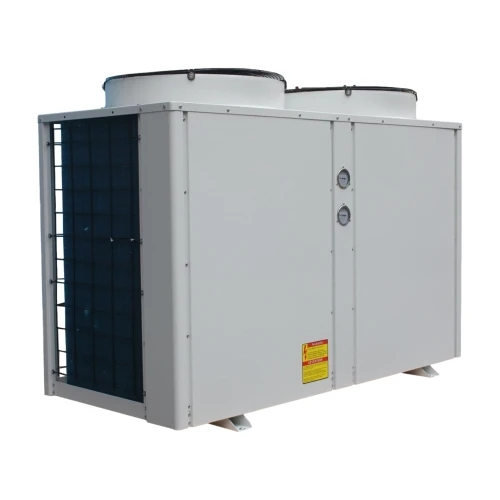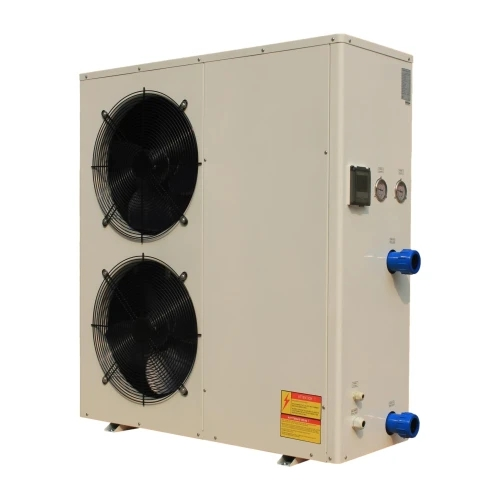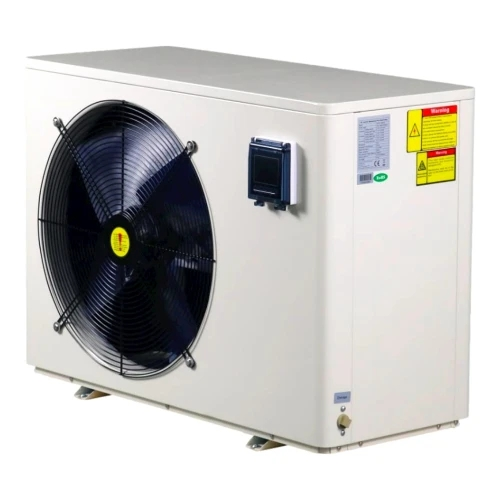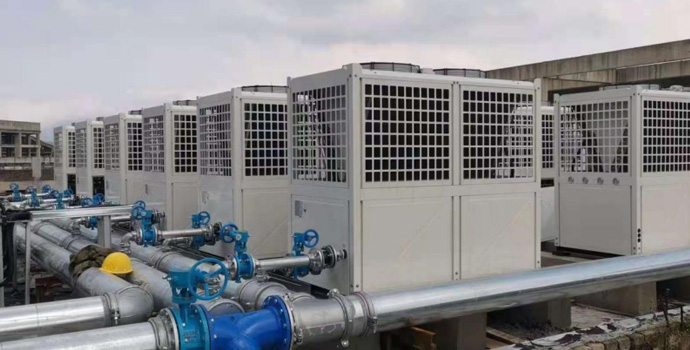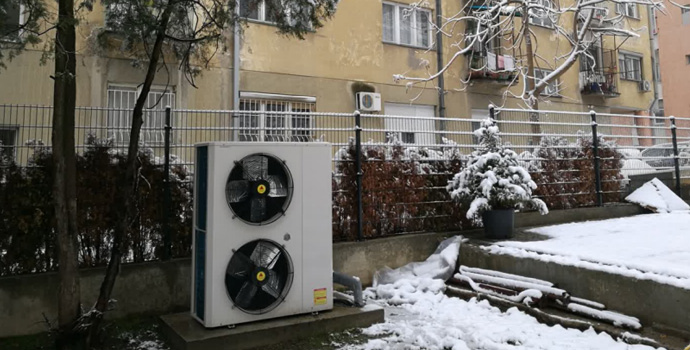1) Soft start, low starting current
With soft start function , the heat pump can start smoothly and so reduce the starting current to avoid the trip due to the overcurrent. Besides, because there is no current impacting on the compressor, the lifespan of the DC inverter heat pump machine is prolonged.
2) Comfortable and constant water temperature
The running frequency of the inverter heat pump compressor is automatically adjusted based on the change of the ambient temperature and water temperature. When the ambient temperature is low, the compressor runs in high frequency and the target water temperature is reached quickly. When the ambient temperature is high, the compressor decreases the running frequency and runs in low frequency to keep the water temperature stable. Thus the room temperature or hot water temperature is always comfortable and constant.
3) High efficiency and able to work down to -25℃
As the variable running frequency at the different ambient temperature, it makes the DC inverter heat pump more adaptable to work in low temperature environment and work down to -25℃, meanwhile make sure the efficient heating at low temperature.
4) Low noise
There is no frequent start and stop on the heat pump machine so it is not only less noise but also energy saving. Besides, when the DC inverter heat pump runs in low frequency , the noise is also relatively low, so it provide us more quiet and comfortable environment.
5) Energy saving and environment friendly
As any of other types of the heat pumps , DC inverter heat pump is a low-carbon energy saving product. It does not produce any exhaust gas, waste water and waste residue emissions. The operation cost of the DC inverter heat pump is only 1/4 of the electric water heater, 1/3 of the oil and gas water heater, and 1/2 of the solar water heater, therefore installing a DC inverter heat pump is an effective way to reduce our energy costs.
 Private Swimming Pools
Private Swimming Pools

